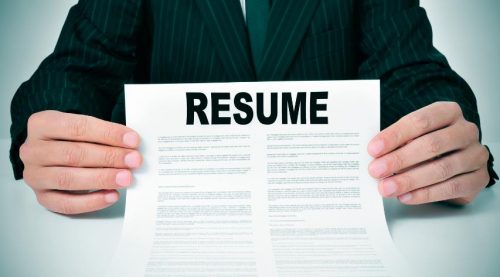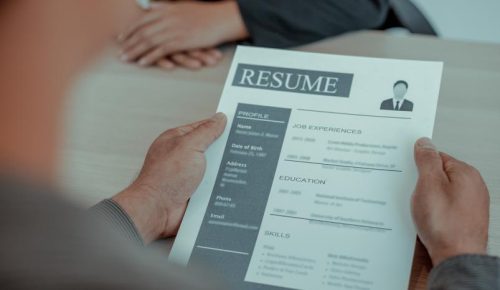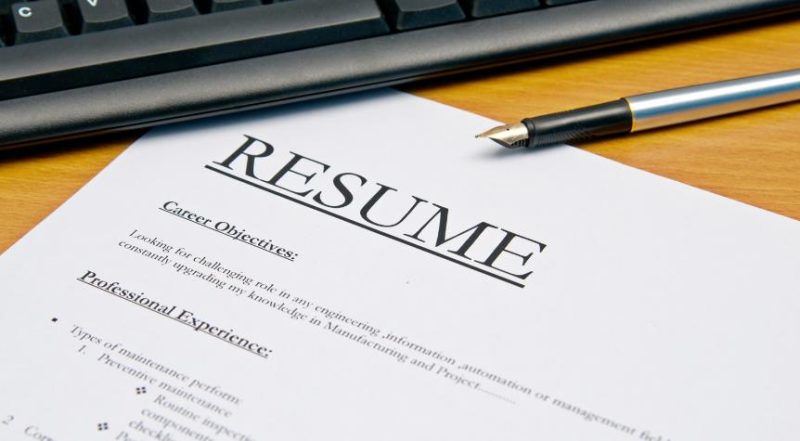You’ve spent hours working on your resume, but it still needs improvement. Follow all of these tips to avoid putting yourself at risk for making mistakes that could cost you an interview or even a job.
Tips to write a perfect resume
Don’t use more than one page
- Only use one page.
- DO write a unique and compelling resume that focuses on your accomplishments, not just what you did for your last job or where you went to school.
- DO avoid using words like “I,” “me,” or “we.” This can make it seem as though you’re the star of the show (which is only sometimes a good thing). If people in charge at an organization need to hear from others about why they should hire someone like you, then, by all means, say something about yourself on your resume—but keep it brief!
Don’t use a generic objective statement
You can use a generic objective statement. A summary statement is the most effective way to show off your skills and experience.
Don’t write paragraphs! Use short bullet points

Bullet points are the best way to break up long blocks of text. They’re easier to read and take up less space, so employers can quickly scan your resume for the necessary information.
Bullet points also make it easy to highlight important information in your resume that you want them to notice first.
Don’t use the words “I,” “me,” “we,” or “my.”
DO use the words “I,” “me,” and “we.”
Use these words to refer to yourself in an interview or when writing about a group of people. However, don’t use them if you are writing about yourself in a resume or cover letter—it’s best to keep your focus on who you are as an individual by using your name throughout the document.
Don’t use pronouns
One of the most common mistakes people make when writing their resumes is using pronouns. The problem with this is that it usually needs more attention to detail and can make your resume look sloppy.

Here are some things you should avoid when using personal pronouns:
- Don’t use myself, me, or my in your resume. These words show a lack of polish and professionalism because they have been used so often in casual conversation that they have become meaningless to employers. They don’t sound professional; instead, try describing yourself as an expert at something specific (e.g., “I am an expert at…”).
- A good rule of thumb is never to refer directly back to yourself within sentences unless it’s an exact quote from someone else who was talking about themselves – otherwise, no one will get what you mean! For example: “I am very proud.”
Don’t include your GPA if it is less than 3.5
If your Grade point average is less than 3.5, don’t include it on your resume. This is because employers are more interested in what you have accomplished than how many A’s you have received in high school or college. Even if your GPA is above 3.5, it’s still a good idea to leave off the number entirely if asked for by an employer because this can make applicants seem like they are trying too hard for that one extra point of approval from their potential boss.
However, if an interviewer asks about your academic background at all during the interview process and mentions that they want to see some proof (e.g., transcripts), then feel free to provide this information as well—but only after they’ve already asked what kind of work experience do I have?
Only highlight under-class work in the education section
Don’t highlight classwork, coursework, or education in your resume’s education section. It shouldn’t be there.

Don’t highlight achievements or awards either. If you were awarded a prize for being an excellent student or athlete and want to share this information with potential employers, then it’s OK to put it on your resume. But if that’s all that stands out about what you’ve done with your life so far (and by “it,” I mean at least half of everything), then maybe think twice before putting that information out there in such a visible place!
Don’t get into details about coursework in the education section
Don’t get into details about coursework in the education section of your resume unless you’ve been asked to provide this information and feel it is highly relevant to the job you are applying for.
If your contact has asked for this information, then, by all means, include it—don’t go overboard! Don’t list every course or class you took at different colleges or universities. Instead, list only those courses that relate directly to the position for which you are applying (e.g., if there is a requirement for a certain college degree level to work as an accountant in accounting firm).
Don’t use personal pronouns

Don’t use personal pronouns or refer to yourself in the third person when writing your resume.
Personal Pronouns: “I,” “me,” “we,” and my
Refers To Yourself In The Third Person: Your name is first, then you’re directed to use personal pronouns like “I” and “me” instead of your name. This can be confusing for hiring managers who may think you’re referring to yourself directly instead of trying to be humble by referring only through them (i.e., “My name is Jane Doe; this is what I did at XYZ limited company“). It also makes it harder for them to follow along while reading because they don’t know if they should read those names as part of their job title or something else entirely—though beyond this minor issue, there aren’t many downsides here either way!
Make sure you don’t make any mistakes with your resume
- Personal pronouns are a big no-no. Don’t use “I” or “me” in your resume. It’s unprofessional and could cost you the interview or even the job!
- The word “my” should only be used when referring to something that belongs to you, like your car or house (or maybe even yourself). In other words, only use it if there’s another person who can take credit for what you’re talking about in your resume.
- Avoid using any of these words: I, me, me myself, etc., because they make it seem like the writer doesn’t think they have anything worth writing about because they’re too scared that someone might see through their lack of confidence and realize how much work needs doing before those skills will be helpful to again (which means writing excellent resumes).
Conclusion
So there you have it, the resume example that will help you get those interviews. Remember, these are just guidelines and not rules—if you feel something is wrong with your resume or you think it needs to be done differently, then do it! But always ensure that what is being displayed on paper is accurate and true to who you are as a person.







